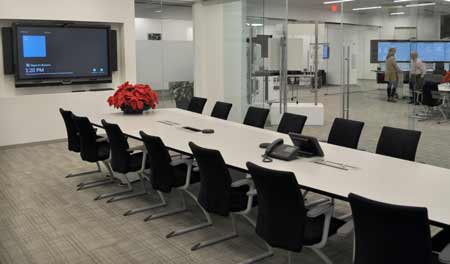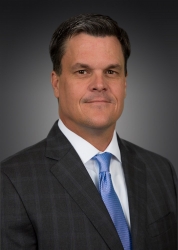Are audio and visual experts really necessary for my A/V project?
The quick answer to this is: “in all likelihood, yes.” Sure, there are companies and venues out there that have already invested heavily into their A/V infrastructures and have experts on staff ready to go. Fiscal realities being what they are, though, this isn’t something that most businesses can afford to do. For those companies, it is highly recommended that they work with experienced A/V integrators before moving forward on a project. It’s a matter of sidestepping potential issues and extracting every last bit of value from a new A/V system. In this respect, the investment into an audio and visual expert is one that will pay for itself over the system’s lifespan.What value can audio and visual experts bring to an A/V project?
Audio and visual experts bring much more than just added value. They can steer an A/V project from start to finish. There are businesses out there that just sell the equipment (from whatever vendor they have a deal with) and move on to the next customer. This is exactly what companies should seek to avoid. A/V technology must be supported following installation, ideally for years after it has been set up. What companies should instead look for is an A/V integrator. A/V integrators go well beyond the scope of audio visual experts as they are capable of doing everything it takes to plan out, install, configure and support an A/V solution, as long as they are partnered with the client. Specifically, this is what to expect from an A/V integrator:1. Comprehensive planning prior to the project’s execution – When companies contact an A/V expert like an integrator, they usually have an idea of what they want the system to do. They may not know what technologies it will take to reach that goal, but they know their own needs. The first service an integrator offers, then, is that of a translator. The integrator serves in a consulting role, meeting with the client to discuss their needs and selecting the proper technologies and solutions in response.
The integrator will also examine any rooms that require A/V equipment and diagram them so that all equipment is installed for maximum effectiveness. For example, if the client requires one or more digital displays, the integrator will position them so that they can be viewed from as many angles as possible. If the equipment requires the use of controllers or processors, these will be sequestered into a separate room, or integrated into the room so they are not obvious.
If audio improvements are involved, the integrator will model the space’s acoustics before moving forward so that annoyances like flutter are mitigated before they even emerge.
2. Integration into the company’s current processes – A major risk with choosing an equipment seller is that it is up to the company to ensure everything works with the technology they already have in place. This isn’t as easy as it seems, as inter-compatibility is always tricky to predict. With multiple ecosystems competing for pole position, it’s easy to mismatch products and get a slow, cumbersome system as a result. A basic equipment vendor isn’t going to have much insight on this front.
But an A/V integrator will make it a top priority. Not only will an integrator ensure that all selected technology is configured properly, the integrator will consider the client’s existing workflow before making any critical purchasing decisions. The result will be a system that won’t leave any security gaps or throw up error after error because it is matched with a piece of software that it isn’t designed to work with. These small considerations will make a big difference.
3. Training and system configuration tailored to the client’s needs – The goal of a reputable integrator is to have the A/V system ready for use on day one. This includes setting up user profiles, configuring it for the client’s network and programming any controls for minimal guesswork.
The other part of an integrator’s approach is training. Although modern A/V technologies are designed to be as intuitive as possible, every new technology takes some getting used to. Training users on the system before they have to rely on it does more than get people comfortable. Studies are clear on this point – when a new piece of technology is brought into a company, it must be utilized properly right away. If not, chances are high that it will be pushed aside and ignored by the company’s employees. Experienced A/V integrators are keenly aware of this fact, and responsive training is one way to do this. The integrator will be there to answer questions, show employees how to use various features and showcase how intuitive the technology really is.
4. Ongoing, long-term support – Modern A/V equipment will provide many years of reliable service before major upgrades or replacements need to be considered. However, every technology is going to get ornery at times. Is there someone available to handle any issues that come up with a video conferencing system or video wall? Fortunately, A/V integrators will provide their expert approach long after the system is installed and configured.
Integrators seek to become a long-term support partner, developing a support plan that details how the integrator will respond in the event of a technical issue. This can be customized to fit the client’s support needs. For instance, a critical piece of equipment can be overseen with 24/7/365 onsite support.
Support also takes aim at optimization. In other words, the A/V integrator will regularly visit the company to check the system’s health and verify that it is running with no disruptions or slowdowns. This preventative maintenance will protect the system from major faults that have the potential to produce serious downtime.
Audio and visual experts should be the first people to call when it’s time to develop an A/V project. A/V integrators can make the tough decisions, do the necessary work, and fine tune everything until it’s working seamlessly. And once everything is right where it needs to be, an A/V integrator will ensure it continues to perform for years to come.


